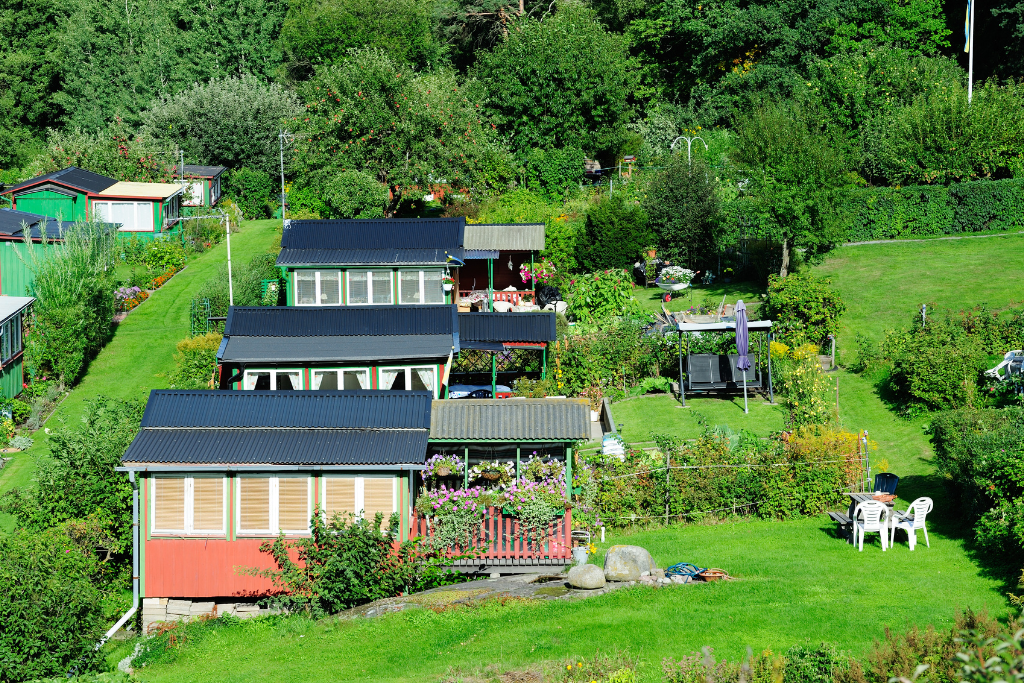1. First steps before moving to Spain
Visa Requirements
Prior to moving, it is important to ensure that all visas and other required documentation for the move have been completed. Spain is a member of the Schengen area. If you plan on moving to Spain from the UK for more than 90 days, you must apply for a residency permit, not a Spain Schengen visa.
Residency Permit
Since Brexit has ended free movement between the UK and EU nations, British citizens in need of a national residence visa or visado nacionale (long-term visa) should get in touch with the Spanish consulate as soon as possible or may also try to apply online. The standard application process can take anything from 3 to 6 months.
Here are the requirements to apply for residence visa:
- Passport or national identity card that is valid
- Copies of valid passports and national identification cards
- Two pictures sized for a passport
- Evidence of residency in Spain
- A completed EX18 request form (Solicitud de certificado de registro de residencia comunitaria)
- Evidence of fee payment
Spain’s Investment Residency Permit Program or Golden Visa
Under Spain’s Investment Resident Permit Program, British nationals and citizens can get a residency visa. It allows qualified investors and their families to obtain Spanish residency by making investments in Spain. You can submit a visa application to the nearest Spanish Embassy or Consulate.
The Golden Visa you will be granted at the Embassy will be good for one-year. After the one year period, you must be in Spain to exchange your visa for a two-year residence permit.
As long as you maintain your investment, the residence permit can be extended forever with no stay limits, and to renew your residence permit, you must be physically present in Spain. If you plan to live in Spain, you can apply for permanent residency after five years of continuous residency (at least six months out of the year).
Visado de trabajo y residencia (work visa)
To legally work and live in Spain, you need a Visado de trabajo y residencia. It is recommended to secure a job before moving to Spain because your employer would then be responsible for your visa and health insurance.
You must complete out the appropriate application form for the type of work permit visa you need. The right form can be found on the Foreigner’s Office website. After completing the application, you must bring it to the Foreigner’s Office, or Oficina de Extranjera, along with the necessary documents stated below:
- a copy of your passport
- a criminal record
- a medical certificate
- three passport-sized photographs
- your NIE (if you are already in the country)
- your employer’s social security number
- a job offer with labor conditions
- a full description of the job and the company’s activity
- proof of your employer’s financial assets (if necessary)
- the corresponding Spain work permit visa application form
Visado de estudios (student visa)
This Visado de estudios is for students who are enrolled in a recognized program of higher education or vocational training and will be staying in the country for that length of time. Keep in mind that this is not a standard residency permit. Hence, student visa years do not count toward permanent residency or Spanish nationality. Student visas are divided by course length, such as a short-term student visa for 91–180-day students and a long-term student visa for students staying longer than six months.
You can now apply for your student visa at your nearest Spanish consulate. Application should be at least 30 days before starting your Spanish education and no more than 90 days prior. Your application will be processed within a month.
Visado de residencia (family or retirement visa)
Visado de residencia is a family reunification or retirement visa. It is the legal immigration procedure by which any foreigner who lives in Spain with their renewed residence card can bring their relatives to the country.
In the United Kingdom, you can begin the process of family reunification by visiting any Spanish embassy. If you have a valid resident permit in Spain, you can apply for family reunification residence, and the following are the lists of eligible family members you can bring with you. After that you must make an appointment with your local Foreigner’s Office in Spain.
Non Lucrative Visa
A Non Lucrative Visa is for people who have sufficient and guaranteed means to live in Spain. The minimum amount required to apply for a Non-lucrative visa is 400% of Spain’s Public Multiple Effects Income Index (IPREM). To this amount, 100% of the IPREM for each family member under the applicant’s care must be added. It is to reside in Spain without engaging in any gainful (job or professional) activity, however, this visa does not grant you the right to work.
Requirements to get a Non Lucrative visa
- Be over the age of 18 and have no irregular immigration status.
- Evidence of sufficient economic resources to maintain your stay and, depending on the circumstances, your family during the duration of stay you are seeking for without working.
- A negative criminal record issued in the last three months by the authorities of the country or countries where you lived in the previous five years.
- Medical insurance with a company that is legally permitted to operate in Spain.
- A notarized paper describing why you are requesting this visa, the purpose, location, and duration of your stay in Spain, as well as any other reasons you need to explain, with a certified translation into Spanish.
Below is a list of the documents required for a Non Lucrative visa:
- Original passport
- Photocopy of medical certificate
- Original copy of police clearance
- Proof of income certificate
- Proof of health insurance
- Payment of fees received
- Notarized document stating the purpose of the stay
Finding a job
Spain is known to have a high unemployment rate due to their dual labor market, where employees are hired on fixed-terms and contracts. According to Indeed, it is strongly recommended to know the official language of Spain, as this will increase your chances of getting a job. Being fluent in English is helpful but being able to speak Spanish would be the ideal.
Spain has a high demand in many sectors including crane operators, civil engineers, truck drivers, hospital nursing assistants, to name a few.
When finding a job in Spain, you can use employment vacancies and internet job postings like Infojobs and Trabajos.
Getting there
You may make an informed decision on how to move to Spain from the UK by looking into these options for transportation.
Flying is the most convenient way to move to Spain. You can book your flight to get there, for example through its major airport, Adolfo Súarez Madrid-Barajas Airport. The average flight duration between the UK and Madrid (the capital of Spain) is 2 hours and 30 minutes.
From the UK, it is possible to get to Spain in a single day by train. The quickest method is to take the Eurostar from London St Pancras International Railway Station to Paris, then change to a high-speed train to Figueres, Girona, or Barcelona. Another option is to take a bus from London Victoria Coach Station to Zaragoza-Delicias and then a train to Barcelona.
There are three ferry lines between England and Spain, with a total of six sailings every week. Brittany Ferries operates three routes: Plymouth to Santander twice daily, Portsmouth to Bilbao twice daily, and Portsmouth to Santander twice daily.
Be sure to arrive in Spain two or three days before your move in date so you have time to take care of last-minute tasks.
How to transport your belongings from the UK to Spain?
Transportation is not an easy job, which is why a removal company is your best choice if you’re moving many items to Spain. It’s important to choose experienced and reputable movers who are members of The British Association of Removers Overseas (BAR), have an excellent reputation, great online ratings, are professional, and provide the right insurance coverage. Discover MovingWaldo’s careful choice of the 5 best removal companies in London.
Must dos before your arrival
You may find it exciting and challenging to move to Spain. You will be more prepared for your new life if you are aware of these things beforehand.
- Apartment Hunting: Plan ahead by researching and scheduling apartment visits before your arrival. This proactive approach will help streamline your housing search process and ensure a smoother transition.
- Have all important documents translated to Spanish and be legalized.
- It is strongly recommended to learn Spanish, the official language of Spain, before your arrival as English is not common in Spain.
Translating and legalizing documents
Legalization is an administrative act that validates a foreign public document by validating the authenticity of the signature and the capacity in which the document’s signatory operates. Any legal process when moving to Spain can be significantly delayed by inaccurate paperwork and it is critical to ensure that all necessary documents are translated to Spanish when moving. Here’s a step-by-step guide for your convenience.
Below are the important documents to translate and be legalized:
- Birth certificates
- Marriage certificates
- Death certificates
- Wills
- Probates
- Affidavits
- Criminal records
- Police reports
- Academic records
- University certificates
- Medical records
- Government documentation
2.Upon your arrival in Spain
Must dos right upon your arrival
- Get familiar with your neighborhood, and make sure to take note of the important emergency numbers.
- Locate the essential facilities like the nearest hospital, police station, and fire department for your safety and in case of emergency.
- It is important to apply for your Foreigner’s Identity Card/number at your local police station.
Get your Foreigner’s Identity Card (TIE/NIE)
Foreigner Identity Number (NIE) is an acronym that stands for “número de identidad del extranjero”. This document is required to get a residency permit, start a business, open a bank account, and buy a property or car. Please note that a foreigner living in Spain without an NIE is regarded as legally irregular, including EU nationals. This must be obtained as well before house hunting. Within 30 days of your arrival in Spain, you will have to apply for a Foreigner’s Identity Card/number at your local foreigners office or at the police station.
Healthcare
The National Healthcare System in Spain (Sistema Nacional de Salud) is similar to the UK’s NHS. It is tax-funded and offers free healthcare at the basic level. Every town in Spain has a national health center for frontline medical care. To benefit, you need to first register your address with your town council.
Healthcare costs not covered by public insurance depend on the resident category you fall into i.e. employed, unemployed or retired. With a valid official work visa, you can fully access the Spanish social security system and your dependents can also be covered. Moreover, you would be eligible for a Spanish health card that would give you access to healthcare when you are temporarily in another EU member state.
Setting up your cell phone
The GSM network is used by Spain, along with other countries in Europe, for mobile communications. The majority of people can connect right away thanks to this. However, your smartphone will probably still function in Spain even if you’re traveling from a country that makes use of the CDMA network. Once you move to Spain from the UK, if you are not yet ready to get a phone plan, prepaid sim cards are available in a variety of locations, including mobile operator retail outlets, selected convenience stores, and online.
Some of the biggest names in Spanish telecoms are Vodafone España, Movistar, Orange España, Jazztel, and Yoigo.
Getting a driver’s license
To drive in Spain as a resident, you must exchange your driving license within 2 years of residency. After 2 years, it is illegal to drive with your foreign license in Spain and you may get penalized if caught.
You must also register with the traffic authorities within six months after moving to Spain to drive with your foreign license. Visit the Directorate-General for Traffic’s traffic office (DGT). The approved driver’s examination facility (Centro de Reconocimiento de Conductores Autorizado) will conduct a medical exam to determine your fitness to drive.
Exchange your driving license at your local DGT with these documents.
- Passport Form
- Residence card
- Valid international driving license (original and copy).
- 2-passport-size photographs
- Writing that you haven’t been prohibited or suspended from driving
- Written confirmation that you do not have a foreign driving license.
You are not required to wait for years before exchanging your license for a Spanish one. However, you must be a legal resident of Spain to take the Spanish driving test and you can only apply for a driving test at the DGT office in the province where you live. The exam is divided into two parts: written theory and practical driving.
Setting up a bank account
If you wish to open an account after moving to Spain from the UK, you’ll need proof of identity and address, employment status or unemployment documentation, proof of studentship (if you’re a student) and your NIE certificate (foreigner identity).
There are Spanish banks that are preferred for British customers due to their English proficiency and user-friendliness. They are the BBVA Bank Spain, Banco Popular, Santander Bank, and Sabadell Bank Spain
3. Best places to live in Spain

Moving to Spain means deciding where you want to live and considering your priorities. We’ve listed the best places to live in Spain!
| Neighborhood | Characteristics |
| Madrid | Capital of Spain |
| Barcelona | Blend of city and urban lifestyle |
| Alicante | Perfect for beach lovers |
| Malaga | Best for a foodlovers |
Setting up home services
If you plan to rent a property in Spain, your landlord or property owner will have basic utilities installed before you arrive. But, if you plan to buy a home in Spain, you should arrange for utilities as soon as you get your new address to prevent being without them for the first few days.
- Waste management – In most locations of Spain, garbage removal is charged on an annual basis. Waste disposal may be included in your water bill depending on where you live so you have to check with your local government.
- Electricity – In Spain, large cities have several electricity suppliers, including Endesa, Iberdrola, Viesgo, and others, while smaller towns have monopolies. This year, Spain’s wholesale power price fell about 65% to 70 euros per megawatt-hour. To set up your electricity, all you need to do is call an electric company of your choice and provide them with the required documents, such as your NIE and address. Payment for the bills is made from Spanish bank accounts through transferencia and is also accepted at post offices, banks, and electrical providers.
- Water – The majority of Spain’s water is supplied by commercial and government organizations. Just 25% utilize private suppliers, 50% use public suppliers, and the rest use a combination of both. To set up your water supply, go to the town hall in your town or city and provide your ID, NIE, bank account information, and proof of your new residence.
- Gas – In Spain, selecting a gas supplier is similar to selecting an electricity supplier. Each region in Spain has a big provider, but you can also choose from others. Naturgy (Gas Natural), Endesa, and Enagas are the three main gas suppliers in Spain. Even better, several suppliers offer a combined gas and electricity tariff.
- Having a broadband connection when you move is also necessary so you should be aware of this and you can create a contract with any of them. The main broadband providers in Spain are Movistar, Vodafone, Orange, MasMovil, Yoigo, Jazztel, Lowi, and O2. Their services are similar, but prices and quality vary. Consider all options carefully to decide which works best for your broadband needs.
Should you rent or buy?
As of June 2023, the median cost of buying a property in Spain is €383,517; as of October 2023, the median rent for a 1-bedroom apartment in the city center is €752.06.
Trusted websites such as Idealista.com and Fotocasa are often used to find available apartment listings and property or engage with real estate agents for assistance.
4. Cost of living in Spain
| Category | Monthly cost |
| 1 bed apt rent outside city center | €752.06 |
| Groceries
Numbeo’s grocery list |
€203.92 |
| Utilities
Electricity, heating, cooling, water, garbage |
€128.14 |
| Internet with 60 Mbps | €32.63 |
| Transit pass | €34.00 |
| Entertainment
Meal, taxi, movie |
€60.00 |
| Gym membership | €38.89 |
| Total | €1,249.64 |
*prices in Euros
5. The weather in Spain
The weather in Spain varies across the country as some cities reach warmer climates than others. In general, Spain experiences a Mediterranean climate along its coasts with hot and dry summers.
July and August have the highest temperatures, and the whole country is hot and dry during those months. Mostly in the north of Spain, it rains the most in December, January, and February, which are also the months with the coldest weather. The spring season in Spain is typically from March to June while summer season is between June to September. Autumn season begins from September to December and winter is from December to March.
Córdoba has the highest maximum average temperature in Spain, reaching 36.5 degrees Celsius throughout the month of August whereas, Seville – The Andalusian capital might get a little cool in the winter, but it averages 15 degrees Celsius in December.
6. What to do as a local in Spain
Residents of Spain take pleasure in spending their weekends either watching or playing soccer. The most popular teams in Spain are Real Madrid and Barcelona, so be sure to catch a game to embrace the Spanish culture.
Spain is also known for its wild nightlife. Don’t forget to take time for yourself over the weekend and go for a drink with friends. One of the most popular pubs in Spain is Opium Mar in Barcelona.
If you truly would like to become a local, be sure to explore local farmer’s markets and antique markets filled with unique products for your new home!
7. Fun facts about Spain
- Fun Fact #1: Spain hosts the famous La Tomatina festival, a massive tomato fight amongst the townspeople.
- Fun Fact #2: Spain is home to the oldest restaurant in the world called Sobrino de Botín in Madrid.
- Fun Fact #3: Spain is known for its unique architecture, more specifically produced by Antoni Gaudí, who is a Catalan architect!
Conclusion
Moving to Spain from the UK provides access to a wonderful local and expat community, as well as a lower cost of living. After the legalities, you may now start to dream about your new surroundings. Moving somewhere new can be difficult, especially due to the language barrier, but you’ll eventually appreciate the change. With proper planning and a sensible budget, moving to Spain from the UK should be easy.
In need of a trusted moving company to move you to London? Discover the 5 best removalists in London.





